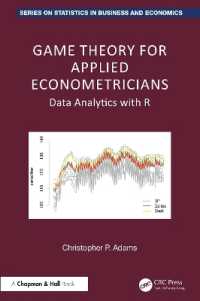- ホーム
- > 洋書
- > ドイツ書
- > Humanities, Arts & Music
- > Philosophy
Full Description
In nine chapters, different methods and tools used in X-Phi are explained, spanning quantitative vignette studies, interactive experiments, corpus analysis, psycholinguistic experiments as well as qualitative interview studies.








